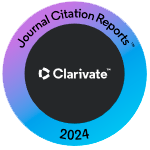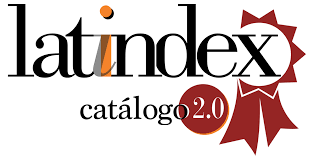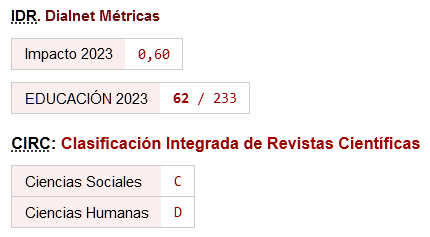Changes in the organization of the educational process during the Covid-19 pandemic period: analysis of pre-school teachers' experiences
DOI:
https://doi.org/10.46661/ijeri.6475Keywords:
COVID-19, Distance education, Organization of pre-school educationAbstract
The COVID-19 pandemic has had a major impact on education and teaching systems. It has fundamentally changed the way we learn, teach, communicate and collaborate within and between our education and teaching communities. This has affected learners, their families, teachers, heads of institutions, as well as the wider community. The purpose of this study is to analyse the pre-school teachers' experiences about changes in the organization of the educational process during the covid-19 pandemic period (in Lithuania). The strategy of qualitative research was chosen for the study, 15 Klaipėda city pre-school education teachers were interviewed. The study revealed that teachers did not change the content of education programs, sought to maintain the continuity of education and develop all the competencies of preschool children. Participants of the educational process experienced a variety of emotions and disturbances. Teachers missed for more decisive action of the institution’s administration. Many teachers note that it was difficult to manage time and organize activities for children. The opinion of educators discovered during the research helped to highlight advantages and disadvantages of distance pre-school education. Although the participants of the education process experienced difficulties, distance education enabled teachers to develop subject competencies and improve their ability to use ICT in the educational process.
Downloads
References
Berger, L. P., Luckmann, T. (1999). Socialinis tikrovės konstravimas: žinojimo sociologijos traktatas. Vilnius: Pradai.
Bertling, J., Rojas, N., Alegre, J., Faherty, K. (2020). A Tool to Capture Learning Experiences During COVID-19: The Pisa Global Crises Questionnaire Module OECD. Organisation for Economic Co-operation and Development. https://www.oecd-ilibrary.org/education/a-tool-to-capture-learning-experiences-during-covid-19_9988df4e-en
Brown, N., Te Riele, K., Shelley, B. & Woodroffe, J. (2020). Learning at home during COVID-19: Effects on vulnerable young Australians. Independent Rapid Response Report. Hobart: University of Tasmania, Peter Underwood Centre for Educational Attainment. https://www.utas.edu.au/__data/assets/pdf_file/0008/1324268/Learning-at-home-during-COVID-19-updated.pdf
Buber, M. (2001). Dialogo principas II. Vilnius: Katalikų pasaulis.
Cohen, L., Manion, L. Morrison, K. (2007). Research methods in education. (6th ed.). New York: Routledge.
Creswell, J. W. (2014). Research Design: Qualitative, Quantitative and Mixed Methods Approaches (4th ed.). Thousand Oaks, CA: Sage.
Donohue, Ch., Johnson, A., Lucas, P., Lynd, Ch., Mukerjee, J., Thouvenelle, S. (2020). Distance Learning and Early Childhood Education. Early Childhood Learning and Knowledge Center. https://eclkc.ohs.acf.hhs.gov/professional-development/article/distance-learning-early-childhood-education
Supporting teachers and education personnel during times of crisis (2020). UNESCO COVID-19 Education Response. Education Sector issue notes. Issue note no.2.2.
https://unesdoc.unesco.org/ark:/48223/pf0000373338/PDF/373338eng.pdf.multi
Gutauskas, M. (2010). Dialogo erdvė: fenomenologinis požiūris. Vilnius: Vilniaus universiteto leidykla.
COVID-19: A global Crisis for Teaching and Learning (2020). International Task Force on Teachers for Education 2030. https://teachertaskforce.org/knowledge-hub/covid-19-global-crisis-teaching-and-learning
Policy Brief: Education during COVID-19 and beyond (2020).
Priešmokyklinio ugdymo bendroji programa (2014). https://www.smm.lt/uploads/documents/Prie%C5%A1mokyklinio%20ugdymo%20bendroji%20programa(3).pdf
Reimers, F. M. (2020). Educating Students to Improve the World. Springer Briefs in Education. Springer Open: eBook. https://doi.org/10.1007/978-981-15-3887-2
Schleicher, A. (2020). The Impact of COVID-19 on Education Insights From Education at a Glance. OECD. https://www.oecd.org/education/the-impact-of-covid-19-on-education-insights-education-at-a-glance-2020.pdf
Tarybos išvados dėl kovos su COVID-19 krize švietimo ir mokymo srityje (2020). Europos Sąjungos oficialusis leidinys, 212 (3), 9-14. https://eur-lex.europa.eu/legal-content/LT/TXT/PDF/?uri=CELEX:52020XG0626(01)&from=EN
Žydžiūnaitė, V., Sabaliauskas, S. (2017). Kokybiniai tyrimai: principai ir metodai. Vilnius: Vaga.
Downloads
Published
How to Cite
Issue
Section
License
Copyright (c) 2022 Rasa Braslauskienė, Reda Jacynė, Aida Norvilienė, Sada Ramanauskienė, Neringa Strazdienė

This work is licensed under a Creative Commons Attribution-NonCommercial-NoDerivatives 4.0 International License.












